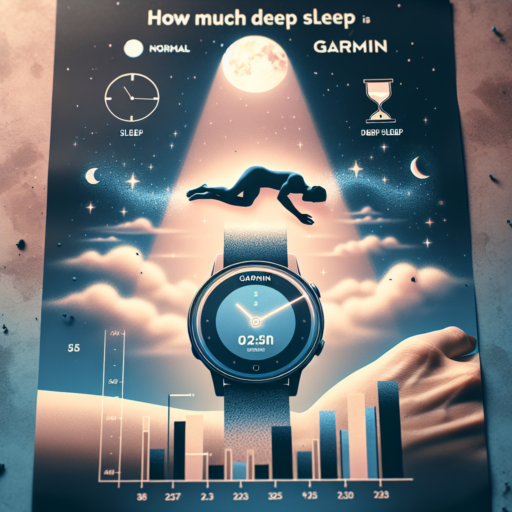What stage of sleep does SWS occur?
SWS, or Slow Wave Sleep, constitutes a pivotal phase within the sleep cycle, playing a crucial role in various aspects of health and well-being. This stage of sleep is predominantly observed during the deeper portions of our sleep cycle, which are critical for physical recovery, memory consolidation, and overall brain health. Identifying when SWS occurs is essential for understanding how to optimize our sleep for better health and cognitive function.
SWS takes place during the non-REM (NREM) stage of sleep, specifically during stages 3 and 4. These stages are characterized by deep, restorative sleep, where brain waves slow down considerably—a hallmark of SWS. During these stages, the body engages in significant healing and growth processes, thanks to the release of critical hormones such as Human Growth Hormone (HGH). It’s a period when the body and brain are in their most relaxed and restorative state, minimizing external sensory inputs to focus on internal recovery and strengthening.
Understanding the precise timing and characteristics of SWS can be instrumental in enhancing sleep quality. These stages typically begin about 45 to 90 minutes after falling asleep, with the first cycle of SWS lasting anywhere from 45 to 90 minutes. As the night progresses, the duration of each SWS period can decrease, with REM sleep stages becoming longer. This dynamic interplay between SWS and REM stages underscores the complexity and importance of a balanced sleep cycle for optimal health and functioning.
No se han encontrado productos.
How much SWS sleep should you get a night?
The amount of Slow-Wave Sleep (SWS), often referred to as deep sleep, that one should aim for each night is a topic rife with complexity due to individual variability. However, experts generally agree that achieving a certain portion of your sleep as SWS is crucial for optimal health and well-being.
On average, 20% to 25% of a healthy adult’s sleep should be deep sleep, according to sleep studies. Considering the recommended 7-9 hours of sleep per night for adults, this translates to approximately 1.4 to 2.25 hours of SWS. It’s important to note that these figures can vary significantly based on factors like age, lifestyle, and overall health.
For children and teenagers, the importance of SWS becomes even more pronounced. Their developing brains and bodies rely heavily on the restorative functions of deep sleep. Thus, they need proportionally more SWS, which can be upwards of 40% of their total sleep time.
What are the 5 stages of sleep waves?
Understanding the intricacies of sleep involves diving into the various stages our brain and body journey through during rest. These stages are fundamentally categorized into distinct sleep waves, each playing a crucial role in our overall health and well-being.
NREM Stage 1: The Threshold of Sleep
The initial stage of sleep is a brief transitional period that lasts for about 1-5 minutes. During this phase, the body begins to relax, muscle activity decreases, and the brain produces Theta waves. This stage is considered to be light sleep, where one can be easily awakened.
NREM Stage 2: Light Sleep
Progressing into the night, we enter the second stage, which lasts approximately 10-25 minutes. It’s during this phase that the body goes into a more subdued state with decreased heart rate and body temperature. The brain activity also changes, showcasing a mix of Theta waves with sudden bursts of brain activity known as Sleep Spindles and K-complexes. This stage is vital for cognitive functions and memory consolidation.
NREM Stage 3: Deep Sleep
As we delve deeper into sleep, Stage 3 marks the onset of deep, restorative sleep. This period sees the emergence of Delta waves, characterized by their low frequency and high amplitude. It’s the hardest stage to wake someone from, and it plays a pivotal role in physical recovery, growth and development, immune system strengthening, and energy restoration.
REM Sleep: The Dream Stage
Following the deep sleep stages, the REM (Rapid Eye Movement) phase begins, usually about 90 minutes after falling asleep. This stage is where dreaming occurs, with heightened brain activity that resembles being awake. It’s essential for emotional regulation, memory processing, and brain development. Interestingly, during REM sleep, the body undergoes atonia, a state of muscle paralysis, preventing one from acting out dreams.
Each stage of sleep serves a unique purpose in maintaining the body’s health and facilitating cognitive functions. It’s in the synergy of these stages that the true benefits of sleep are realized, underscoring the importance of a full, uninterrupted night’s rest for optimal well-being.
How much does SWS sleep per night?
Understanding the sleeping habits of any specific group or individual, such as those referred to as SWS, requires delving into various factors that influence sleep duration and quality. It’s crucial to acknowledge that the optimal amount of sleep can vary significantly depending on a multitude of elements including age, lifestyle, and health conditions.
The Recommended Hours
The standard recommendation for adult sleep is between 7 and 9 hours per night. This guideline serves as a broad target for what is considered restorative sleep, helping to maintain both physical health and mental well-being. While this range is widely accepted, individual needs within the context of SWS may deviate based on specific requirements or conditions.
- Adjusting for Lifestyle: The amount of sleep someone needs can be heavily influenced by their daily activities, stress levels, and overall lifestyle.
- Health Considerations: Certain health issues or disorders can also significantly impact how much sleep is necessary, potentially requiring adjustments to these general guidelines.
In the context of SWS, it’s important to consider these factors when determining the ideal sleep duration. Without a one-size-fits-all answer, individuals often need to assess their own sleep patterns and consult with healthcare providers to understand their optimal sleep requirements. Listening to one’s body and making adjustments based on personal health and lifestyle will aid in achieving the ideal sleep duration for those within the SWS group.




